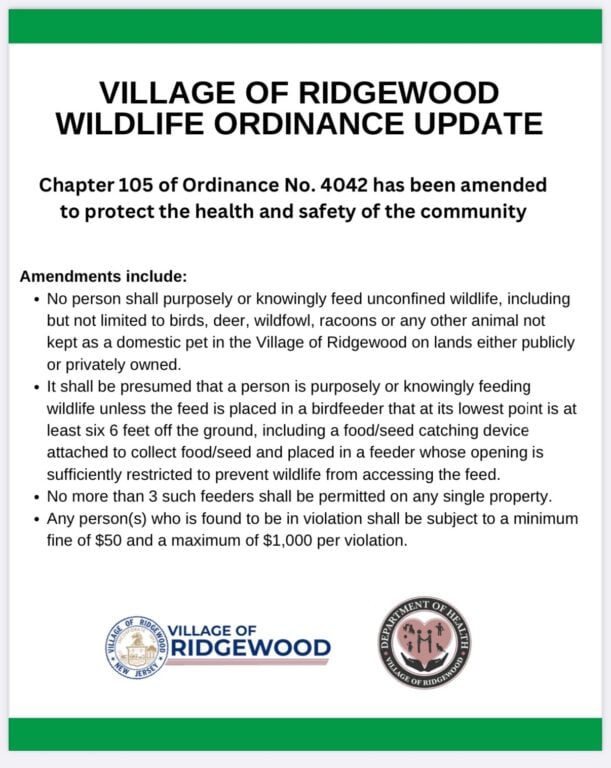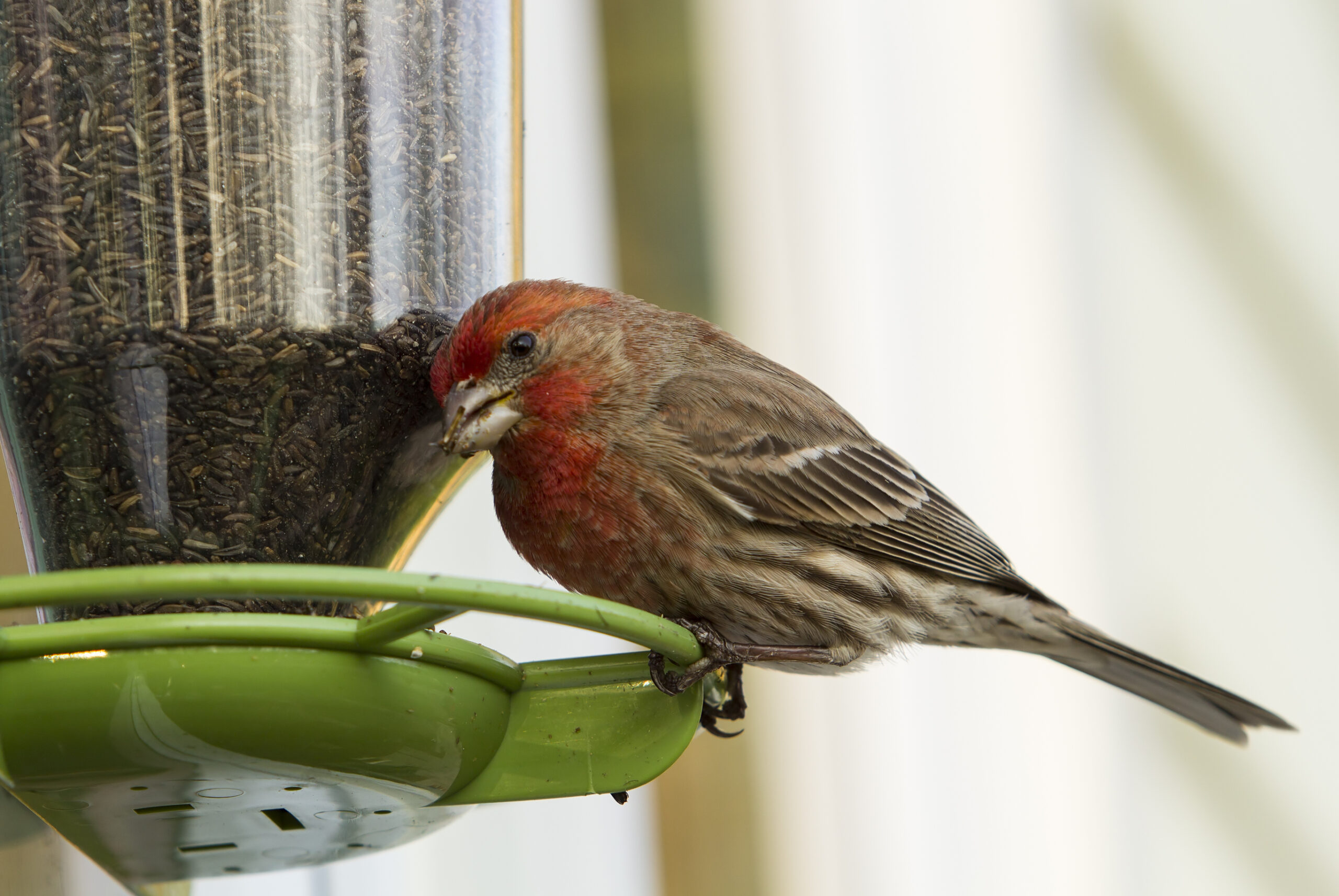RIDGEWOOD, N.J. — A new amendment to Ridgewood’s wildlife ordinance is cracking down on the feeding of unconfined animals as state lawmakers move forward with a broader bill that could prohibit most outdoor feeders across New Jersey.
Key Points
- Ridgewood ordinance prohibits feeding wildlife on public or private property unless strict feeder rules are followed.
- Fines for violations range from $50 to $1,000.
- State bill A360 would prohibit feeding black bears and restrict outdoor feeding across New Jersey.
Under the newly revised Chapter 105 of Ordinance No. 4042, Ridgewood residents are prohibited from feeding birds, deer, wildfowl, raccoons, and any other unconfined wildlife not kept as domestic pets. The ordinance applies to all lands in the village—public or private.

Feeding will only be allowed through birdfeeders placed at least six feet off the ground with food-catching devices that restrict wildlife access. Additionally, no more than three such feeders are permitted per property. Violators may face fines between $50 and $1,000 per offense.
Local changes align with state-level movement
This local measure comes just as Assembly Bill No. 360, which tightens statewide restrictions on feeding black bears and other wildlife, was reported favorably by the Assembly Commerce, Economic Development and Agriculture Committee.
The state bill would eliminate the current exemption for “unintentional feeding” and prohibit most food placements that could attract black bears.
Instead of a blanket exemption, the state legislation outlines specific acceptable activities, such as licensed wildlife possession, agricultural operations, birdfeeding within a defined season, and regulated feeding at animal shelters or cat colonies. Uneaten food must be removed nightly in most cases.
Penalties and enforcement measures
The Ridgewood ordinance and state bill both introduce or amend civil penalties. In Ridgewood, enforcement falls to local authorities, and under the state proposal, fines collected for violations would be remitted directly to the municipality where the offense occurred rather than the Division of Fish and Wildlife.
“This amendment is about protecting the health and safety of the community,” the Ridgewood notice stated.
If passed into law, the state bill would align New Jersey’s wildlife feeding regulations more closely with Ridgewood’s stricter standards, particularly during peak wildlife activity months.

